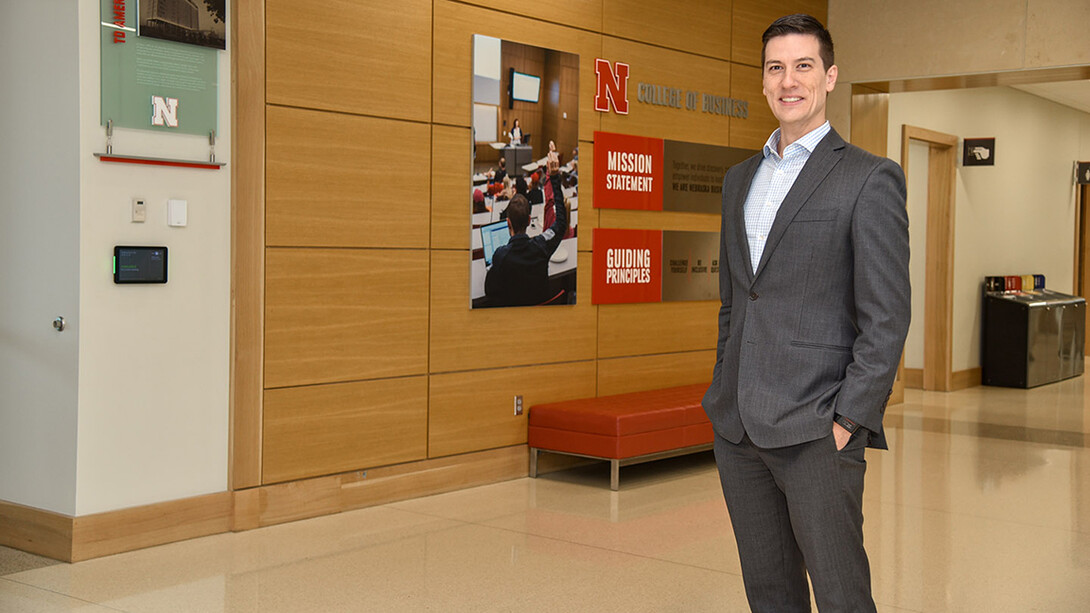
Understanding consumer religious values may be an important element when forming a complete picture of the marketplace according to Nebraska’s Jamie Hyodo.
Inspired by Chick-fil-A and other business models linked to a particular religion, the assistant professor of marketing at the University of Nebraska–Lincoln explored how consumers place trust in firms attempting to recover from business failures.
The study, “How Does Religion Affect Consumer Response to Failure and Recovery by Firms,” was authored with Lisa Bolton of Pennsylvania State University and published in the September edition of the Journal of Consumer Research.
“Very little is known about how religion affects consumers and consumption because it has historically been held separate from the market environment,” Hyodo said. “For this paper, we focused on whether religion is top of mind for consumers. When someone is thinking through a lens of religious values, we look at how it changes the way they interact with a company.”
Hyodo, who joined the College of Business in 2016, explained how, traditionally, the marketplace maintained a secular approach, providing businesses with the flexibility to cater to people of all faiths. In recent years, companies like Chick-fil-A began changing that script and openly associating with a particular religion. That shift in how a company presented themselves publicly motivated Hyodo to look more closely at issues related to religion and consumer behavior.
“What we theorized and found was people who have religion top of mind, behave consistently with what we think of as traditional religious values,” Hyodo said. “This showed up in our research when looking at how consumers responded to companies that experienced failures by spectacularly falling short of expectations. The failure could be something as simple as being at a restaurant that does a terrible job of preparing your meal, or something big like BP’s giant oil spill where a company fails at the brand level.”
Hyodo explored different levels of failure and found a consistent effect, regardless whether the failure happened at a one-to-one level or in a very public manner. He began to see religious beliefs playing a role in the recovery of those business failures.
“When people consider these failures through a religious outlook, they tend to respond in a more forgiving manner than those who don’t have religion at the forefront of their thinking,” Hyodo said. “There’s an important caveat though, which is we only see increased forgiveness when the consumer perceives a sincere effort has been made to recover from the failure.
“The recovery can take the form of an apology, financial compensation, an explanation as to why the failure occurred or a combination of those things, which can be interpreted as recovery.”
The research explicitly tested people of Christian, Jewish and Islamic faiths. It also looked at people who reported as agnostic or atheist.
“The most exciting thing about this research is we didn’t limit the research to people of a specific faith. We replicated the effect and found even people who don’t affiliate with a religion are familiar with religious values, so when they’re reminded of religion in some way, it tends to affect the way they interpret the information they’re processing,” Hyodo said. “Even non-religious people can apply a religious lens and behave in a more forgiving manner. It’s less about one’s affiliation and more about what’s top of mind that affects the way you process information.”
Based on the research, Hyodo believes reminders of religion in our daily lives can inspire people to act with traditional religious behaviors, such as practicing forgiveness.
“My research is rooted in consumer psychology and I’ve taken a strong interest in morality and moral influences, and how they show up in consumer behavior. I look at when they exert themselves and when they don’t,” Hyodo said. “I’m also interested in emotions and specific things like gratitude that contain a moral component, including what we call super liminal influences. These influences explore the way people process information which means you’re aware of them but not necessarily aware how they’re affecting you.
“I want to identify these factors that help change the way we see the world.”







